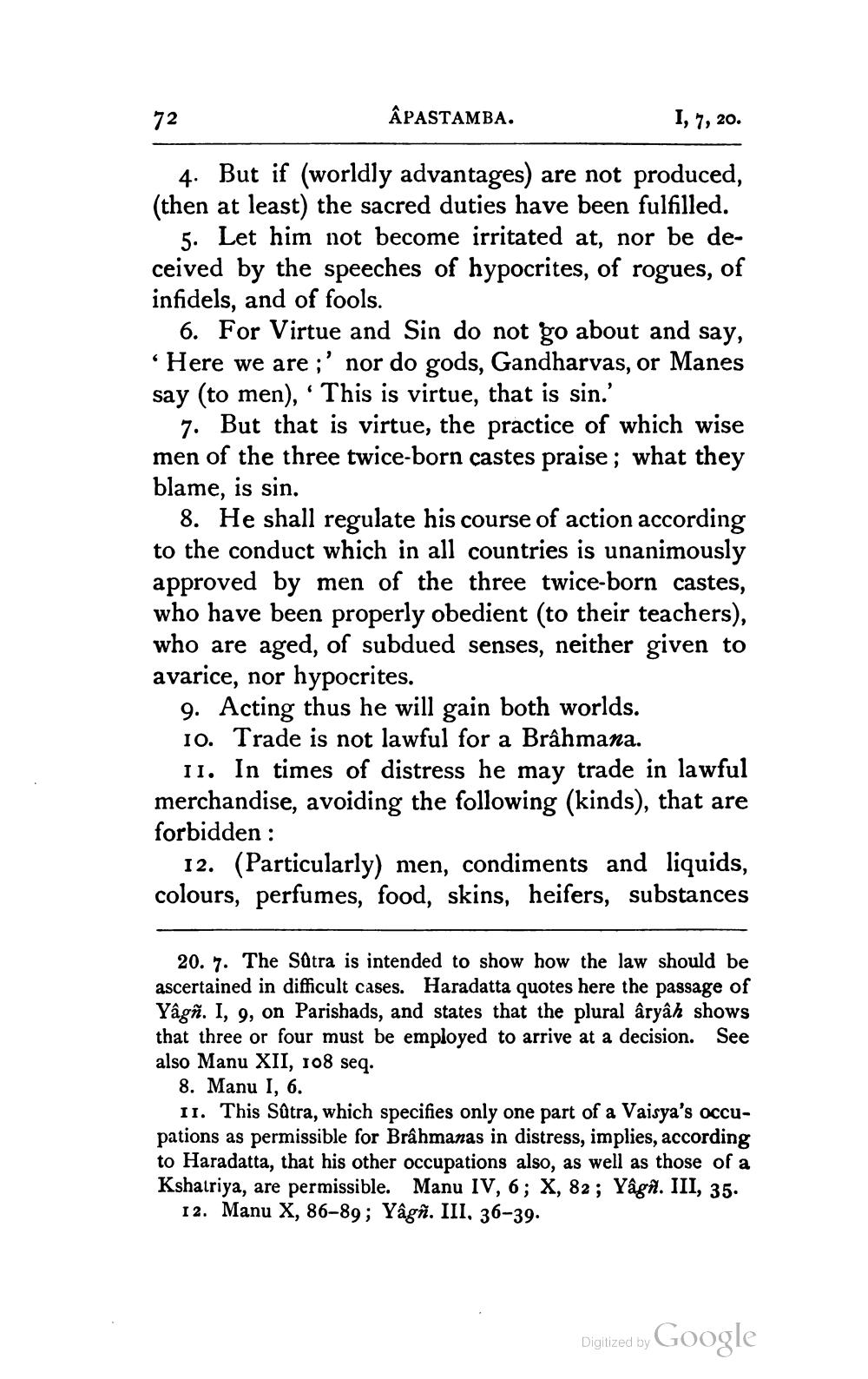________________
ÂPASTAMBA.
I, 7, 20.
4. But if (worldly advantages) are not produced, (then at least) the sacred duties have been fulfilled.
72
5. Let him not become irritated at, nor be deceived by the speeches of hypocrites, of rogues, of infidels, and of fools.
6. For Virtue and Sin do not go about and say, 'Here we are;' nor do gods, Gandharvas, or Manes say (to men), This is virtue, that is sin.'
7. But that is virtue, the practice of which wise men of the three twice-born castes praise; what they blame, is sin.
8. He shall regulate his course of action according to the conduct which in all countries is unanimously approved by men of the three twice-born castes, who have been properly obedient (to their teachers), who are aged, of subdued senses, neither given to avarice, nor hypocrites.
9. Acting thus he will gain both worlds.
10. Trade is not lawful for a Brahmana.
II. In times of distress he may trade in lawful merchandise, avoiding the following (kinds), that are forbidden :
12. (Particularly) men, condiments and liquids, colours, perfumes, food, skins, heifers, substances
20. 7. The Sutra is intended to show how the law should be ascertained in difficult cases. Haradatta quotes here the passage of Yâgn. I, 9, on Parishads, and states that the plural âryâh shows that three or four must be employed to arrive at a decision. See also Manu XII, 108 seq.
8. Manu I, 6.
II. This Sûtra, which specifies only one part of a Vaisya's occupations as permissible for Brâhmanas in distress, implies, according to Haradatta, that his other occupations also, as well as those of a Kshatriya, are permissible. Manu IV, 6; X, 82; Yâgn. III, 35. 12. Manu X, 86-89; Yâgñ. III, 36-39.
Google
Digitized by




